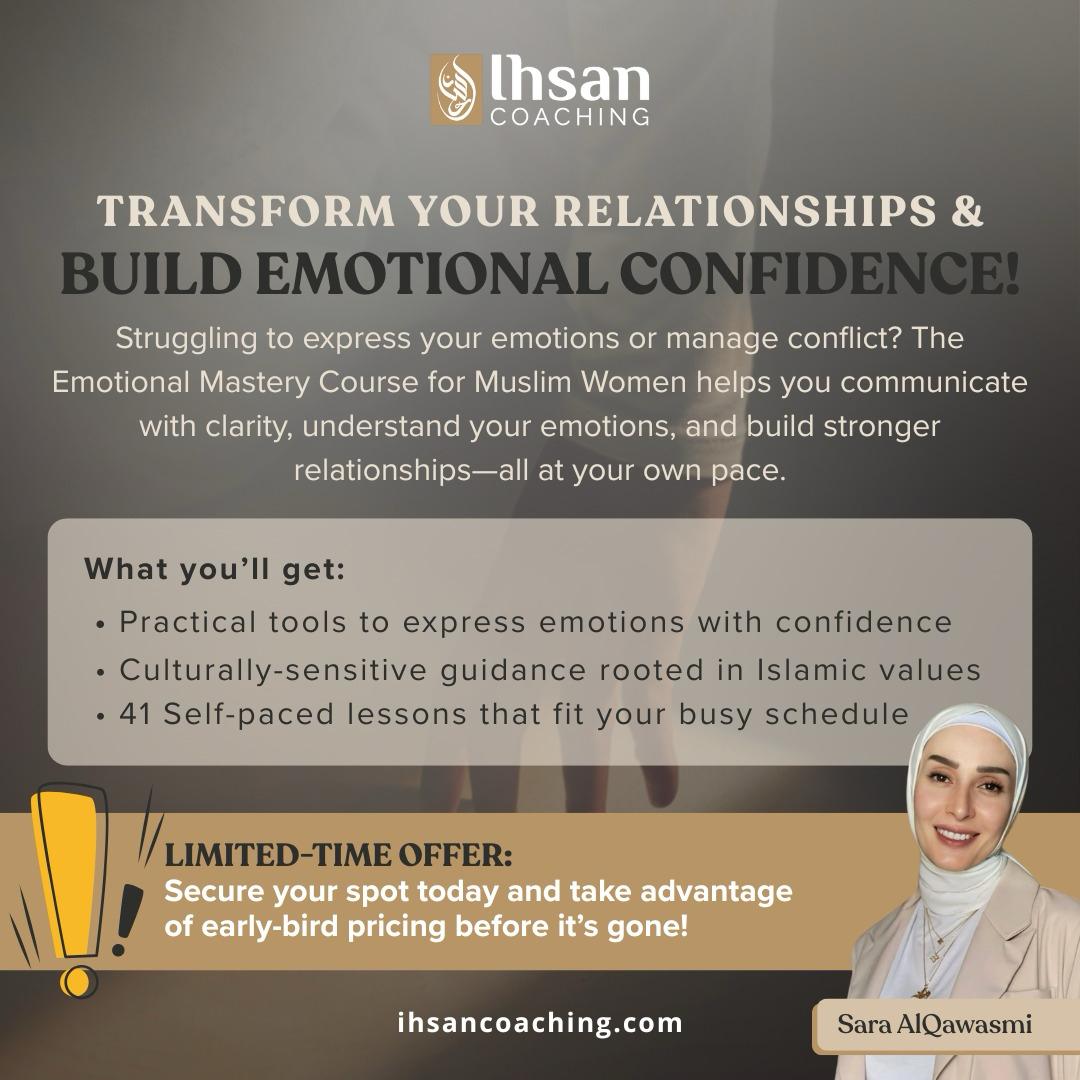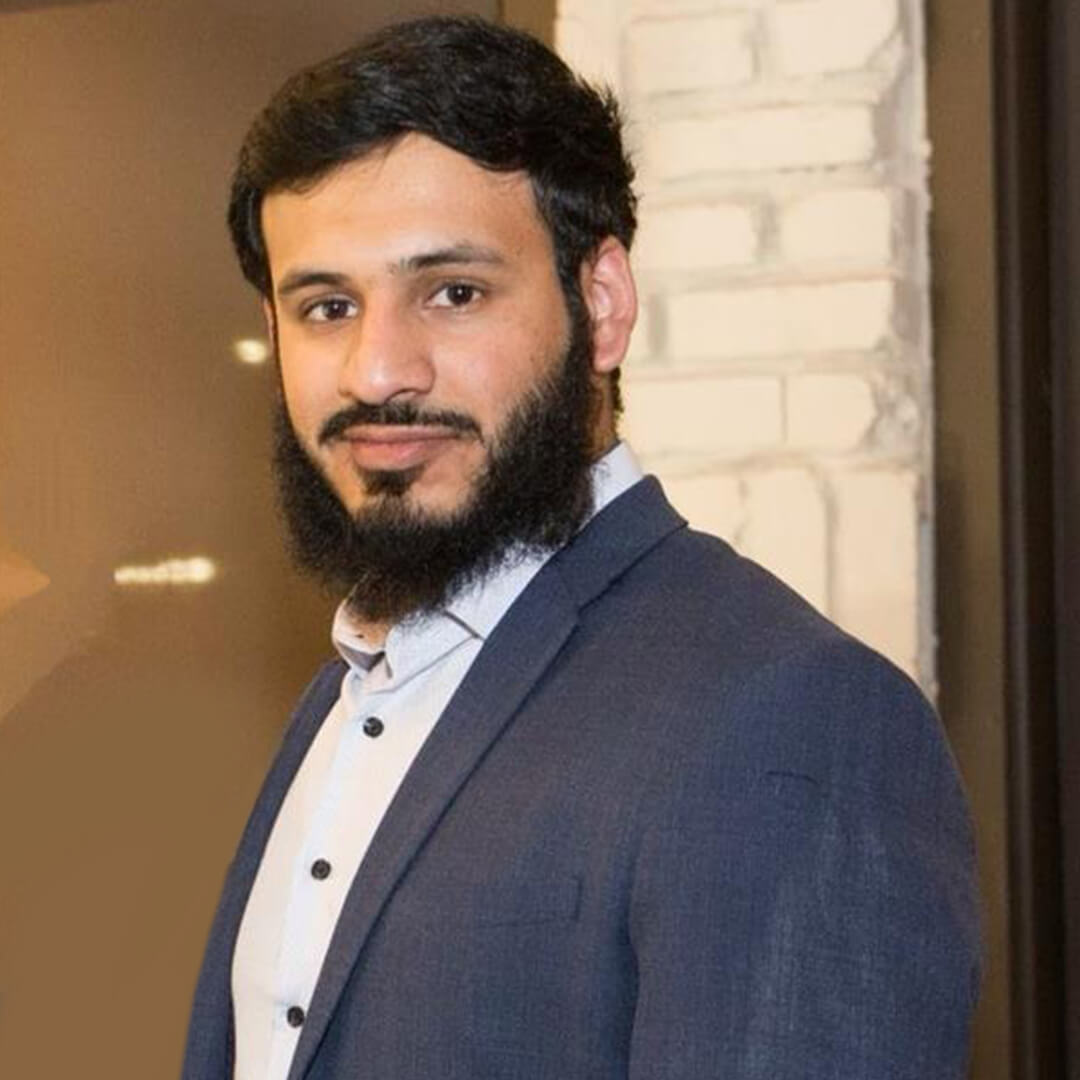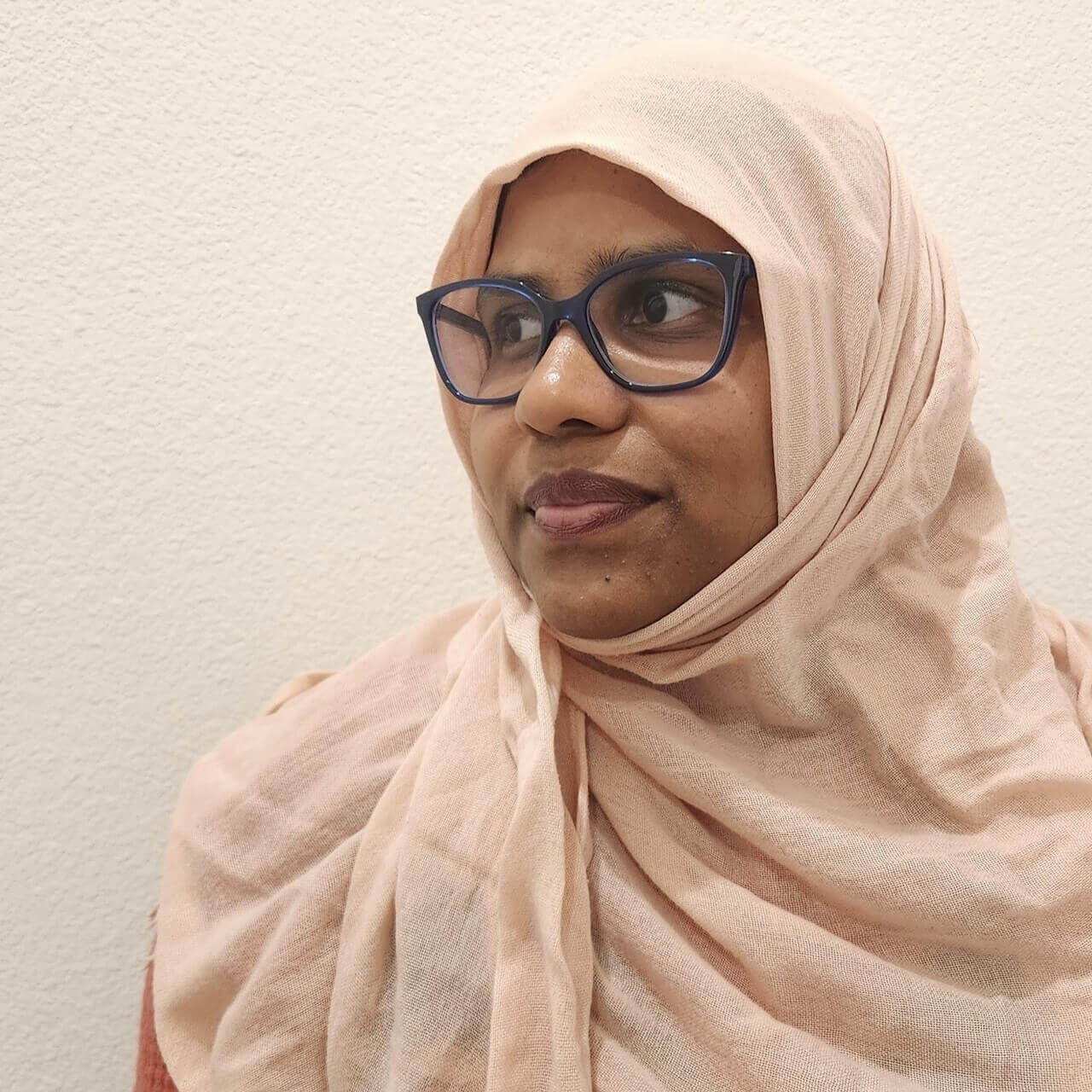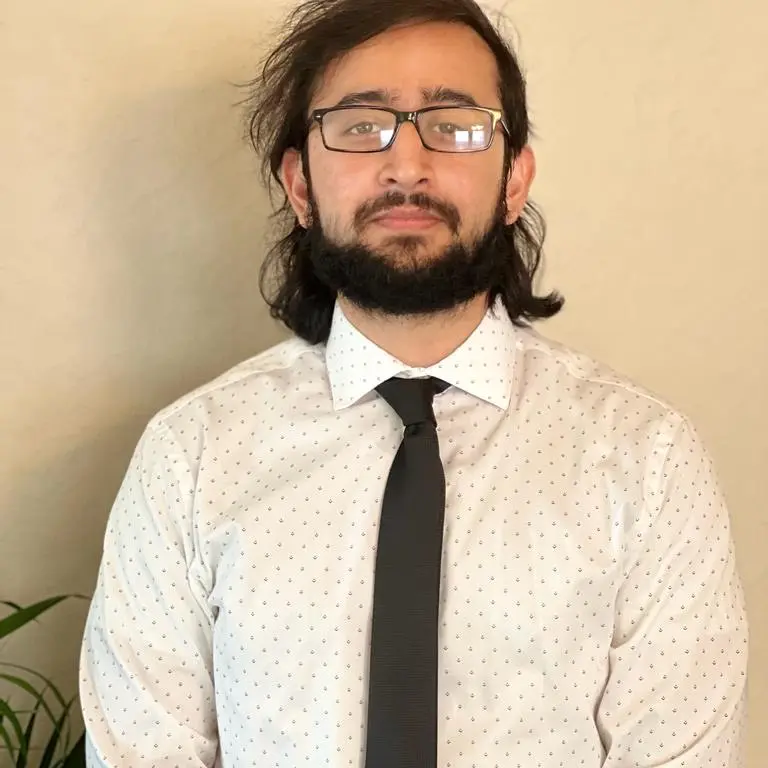Did you know that 1 in 8 adults globally experiences mental health issues such as depression and anxiety, with over 280 million people affected by depression alone? Among Muslims, these challenges often remain hidden due to cultural and societal stigmas. Many Muslims felt unsupported when seeking mental health services that align with their faith and values.
The path to overcoming depression and anxiety can be achieved through Online Individual Coaching for Your Unique Journey – Ihsan Coaching with a special focus on faith-centered approaches provided by Muslim Mental Health Therapists and Islamic Therapists.
Depression vs Anxiety
Depression and anxiety are two of the most prevalent mental health disorders. While they differ in their manifestations, they often co-exist, making early recognition and treatment essential.
Depression
Characterized by:
- Persistent sadness.
- Loss of interest in daily activities.
- Fatigue and low energy.
- Feelings of worthlessness or guilt.
Anxiety
Characterized by:
- Excessive worry or fear.
- Restlessness or nervousness.
- Rapid heartbeat or chest tightness.
- Difficulty focusing on tasks.

The Islamic Perspective on Mental Health
Islam recognizes mental health as a vital aspect of overall well-being. The Quran emphasizes emotional resilience and encourages seeking help:
وَإِنَّ مَعَ الْعُسْرِ يُسْرًا
“Indeed, with hardship [will be] ease.” (Surah Ash-Sharh, 94:6)
This verse reassures believers that struggles, including mental health challenges, are temporary and surmountable with the right support and faith.
Signs You May Need Therapy for Depression or Anxiety
Recognizing the need for professional help is a significant step toward recovery. Consider therapy if you experience:
- Persistent sadness or feelings of hopelessness.
- Unexplained physical symptoms like headaches or stomachaches.
- Avoiding social interactions or responsibilities.
- Overwhelming fear or worry that disrupts daily life.
- Intrusive, distressing thoughts.
Benefits of Coaching or Therapy with a Muslim Mental Health Therapist
A Muslim Mental Health Therapist offers unique benefits by integrating Islamic teachings with modern psychological techniques.
Effective Religious Approach:
- Therapy is grounded in Quranic principles and Sunnah.
- It provides culturally sensitive care without judgment.
- Treatment aligns with Islamic values and beliefs, fostering trust.
Practical Coping Mechanisms:
- Mindfulness techniques inspired by dhikr (remembrance of Allah).
- Guided spiritual exercises for stress relief.
- Tools to build emotional resilience through sabr (patience) and tawakkul (trust in Allah).
How Islamic Therapists Address Mental Health:
Islamic Therapists integrate faith into the therapeutic process, offering a holistic approach that considers mental, physical, and spiritual health.
Holistic Healing Approach:
- Spiritual growth: It helps strengthen the bond with Allah.
- Community integration: It encourages healthy relationships within an Islamic framework.
Use of Quranic Verses:
Therapists use Quranic verses for cognitive reframing. For example:
لَقَدْ خَلَقْنَا الْإِنسَانَ فِي كَبَدٍ
“And We have certainly created man into hardship.” (Surah Al-Balad, 90:4)
This verse reframes challenges as tests of faith, not punishments.

Effective Therapy Techniques for Depression and Anxiety
1. Cognitive Behavioral Therapy (CBT)
- It helps identify and change negative thought patterns.
- Islamic Therapists incorporate spiritual reflections into CBT sessions.
2. Mindfulness and Dhikr
- It combines mindfulness practices with dhikr.
- Examples include breathing exercises paired with phrases like “SubhanAllah” (Glory be to Allah) or gratitude journaling from an Islamic perspective.
3. Interpersonal Therapy (IPT)
- It focuses on improving relationships while respecting Islamic guidelines, helping combat social isolation.
Practical Steps to Navigate Therapy
1. Acknowledge Your Struggles
Admitting you need help is the first step toward healing.
2. Choose the Right Therapist
Seek an Islamic Therapist to ensure your spiritual and emotional needs are addressed.
3. Set Realistic Goals
Therapy is a journey, and progress happens gradually.
4. Engage in Self-Care
Complement therapy with salah (prayer), healthy eating, and regular exercise.
FAQs About Therapy for Depression and Anxiety
What is the role of a Muslim Mental Health Therapist?
A Muslim Mental Health Therapist blends modern psychological practices with Islamic principles. They address mental health challenges through a culturally and spiritually sensitive lens. This approach ensures therapy aligns with Islamic teachings while offering evidence-based treatments like Cognitive Behavioral Therapy (CBT), mindfulness, and interpersonal therapy.
Is seeking therapy against Islamic beliefs?
No, seeking therapy aligns with Islamic values. Islam encourages addressing problems proactively. The Prophet Muhammad (PBUH) said:
“Make use of medical treatment, for Allah has not made a disease without appointing a remedy for it.” (Sunan Abi Dawood)
Therapy is a means of seeking help, just as you would for physical ailments, emphasizing reliance on Allah while using the resources He provides.
Can an Islamic Therapist address family and relationship challenges?
Yes, Islamic Therapists are skilled in navigating family dynamics, marital conflicts, and parenting challenges. They offer guidance rooted in Islamic principles, such as mutual respect, consultation (shura), and empathy, while providing healthy communication and conflict resolution techniques.
How can therapy improve my relationship with Allah?
Therapy with an Islamic focus integrates practices like dhikr, reflection on Qur’anic verses, and a deeper understanding of tawakkul (trust in Allah). By addressing mental health issues, therapy removes barriers like despair or excessive anxiety that might weaken your spiritual connection.
What happens in a typical therapy session?
A typical session involves discussing your concerns with the therapist, setting achievable goals, and using tailored techniques to address issues. In Islamic therapy, these sessions may include Qur’anic reminders, mindfulness exercises inspired by Islamic teachings, and practical coping strategies grounded in both faith and psychology.
Can therapy help with severe cases of depression or anxiety?
Yes, therapy is effective for both mild and severe mental health challenges. For severe cases, therapists may combine counseling with medical interventions, such as medication prescribed by psychiatrists, to ensure holistic care.
How can I prepare for my first therapy session?
Preparation involves:
- Identify key concerns or symptoms you want to address.
- Write down questions for your therapist.
- Keep an open mind to discuss your experiences.
The therapist will guide the conversation, so no extensive preparation is necessary.
What Islamic practices complement therapy?
Islamic practices such as salah, fasting, dhikr, and reflecting on Qur’anic verses complement therapy. For example, mindfulness can be paired with remembrance phrases like SubhanAllah or Alhamdulillah, enhancing spiritual and mental well-being.
Are therapy sessions confidential?
Yes, therapists are bound by strict confidentiality laws. This means your sessions are private unless there’s a risk of harm to yourself or others. Always discuss confidentiality policies during your initial consultation.
How do I find the right Islamic Therapist?
Look for licensed professionals specializing in Islamic therapy. Research online directories, read reviews, or seek recommendations from trusted community members.
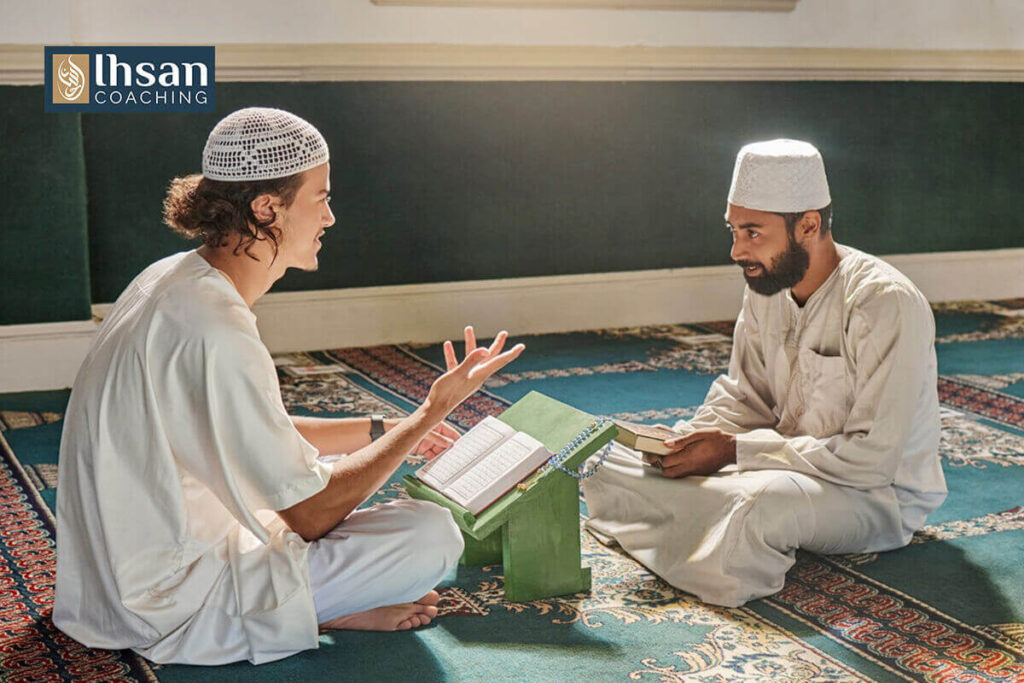
Depression and anxiety can feel isolating, but they don’t define you. With the support of a Muslim Mental Health Therapist or Islamic Therapist, you can start your journey of healing that honors your faith and values.
How Ihsan Coaching Can Help
At Ihsan Coaching, we specialize in providing faith-centered coaching and premarital coaching tailored to Muslim clients. Our life coaches combine Islamic principles with evidence-based methods to support your emotional and spiritual growth.
Take the first step toward healing with us today. Your journey to peace begins now.

